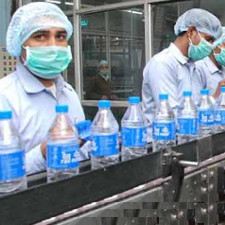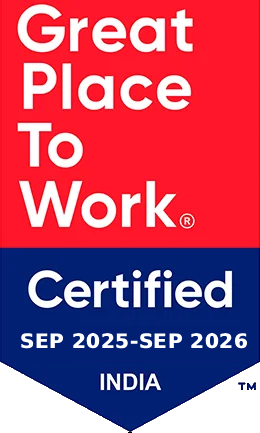 School of Management organized an industrial visit at Rail Neer plants, Nangloi, Delhi. This plant supplies water bottles at railway stations across the country. The plant is located near Nangloi metro station at Nangloi, Delhi. ‘Rail Neer’ is a brand associated under the name of (IRCTC) Indian railway catering and Tourism Corporation. The students of BBA and BBE were taken for the visit and were accompanied by two faculty members.
School of Management organized an industrial visit at Rail Neer plants, Nangloi, Delhi. This plant supplies water bottles at railway stations across the country. The plant is located near Nangloi metro station at Nangloi, Delhi. ‘Rail Neer’ is a brand associated under the name of (IRCTC) Indian railway catering and Tourism Corporation. The students of BBA and BBE were taken for the visit and were accompanied by two faculty members.
This is the first plant set up by IRCTC in 2003.. The purpose was to supply safe drinking water to important Rajdhani and Shatabdi trains originating from New Delhi and Nizammudin. Plant is provided with solar evaporation pits. This is to avoid RO reject to surrounding land and hence comply with state Pollution control norms.
The students were given a presentation on the details adopted by Rail Neer which is under ‘Public-Private Partnership’ basis. Officer answered queries of students on various things associated with the water plant like set up, choosing a location, logistics and supply chain management, cost structure, quality maintenance, marketing etc. students were enlightened with different aspects of management.Students understood the entire process of filtering and bottling the water. They were also told that IRCTC has stopped the earlier practice of packing a dozen bottles in one carton. “Now ‘shrink’ packing is being used in its place. It has significantly reduced the use of paper too.
The purposes of IRCTC’s Rail Neer plants is to provide packaged drinking water to rail commuters on a daily basis. Rail Neer is processed, purified and bottled at state of art plants across India. The plant located in Nangloi is the first plant of IRCTC for rail water-packaged bottles in India.. The Rail Neer is manufactured as per BIS standard IS: 14543-2004. The plant technology at Rail Neer employs 8-step purification processes which is capable of yielding quality water to their customers at railways as per their BIS standard. The main water source for the plants provided is through the ground water level. The steps involved in the 8 step water purification process are:
- Activated carbon filter (STAGE 1and 2) – Stage 1 removes dust, dead microbes, odour/color where as stage 2 is for removing pesticides.
- Auto Softener Unit (ASF) – Hardness of water is removed by ion exchange resin.
- Ultra Filtration Unit (0.001 micron membrane) – All the colloidal, suspended particles and pyrogenic species are filtered out through Ultra Filtration membranes.
- Reverse Osmosis (membrane 0.0001 micron) –All dissolved impurities are removed through this process. Anti scaling agent not used. Generally, all competitors use it to enhance the membrane’s life.
- Marble chip filter- Marble chip filter is used to boost “pH” level of the water. It is an exclusive process adopted by Rail Neer and is usually skipped by other private companies in the country, to earn faster profits with few processes of purification in their production process.
a).Two stage Micron Filters (first membrane 1 micron followed by 0.2 micron)-Impurities with size more than 0.2 micron are filtered out using the two stage micron filter process.
b).Ultra Violet Sterilizer Unit- UV light causes change in the genetic material of micro organisms and thus prevent them from reproducing.
c).Ozonising Unit- Water comes in contact with ozone gas for final disinfection from the micro organisms. The nascent oxygen is powerful oxidizing agent and kills the microbes.
Also, the Rail neer water bottles provided by Rail Neer are manufactured in IRCTC’s plant itself. The bottles are manufactured in the plant using automatic bottle blowing machines with high grade resin pre forms. The ozonizing process helps the water to have a longer shelf life of 5-6 months. To conclude it was a learning enlightening visit which exposed the students to the cumbersome and technical aspect of simple bottled mineral water that we drink every day.





















